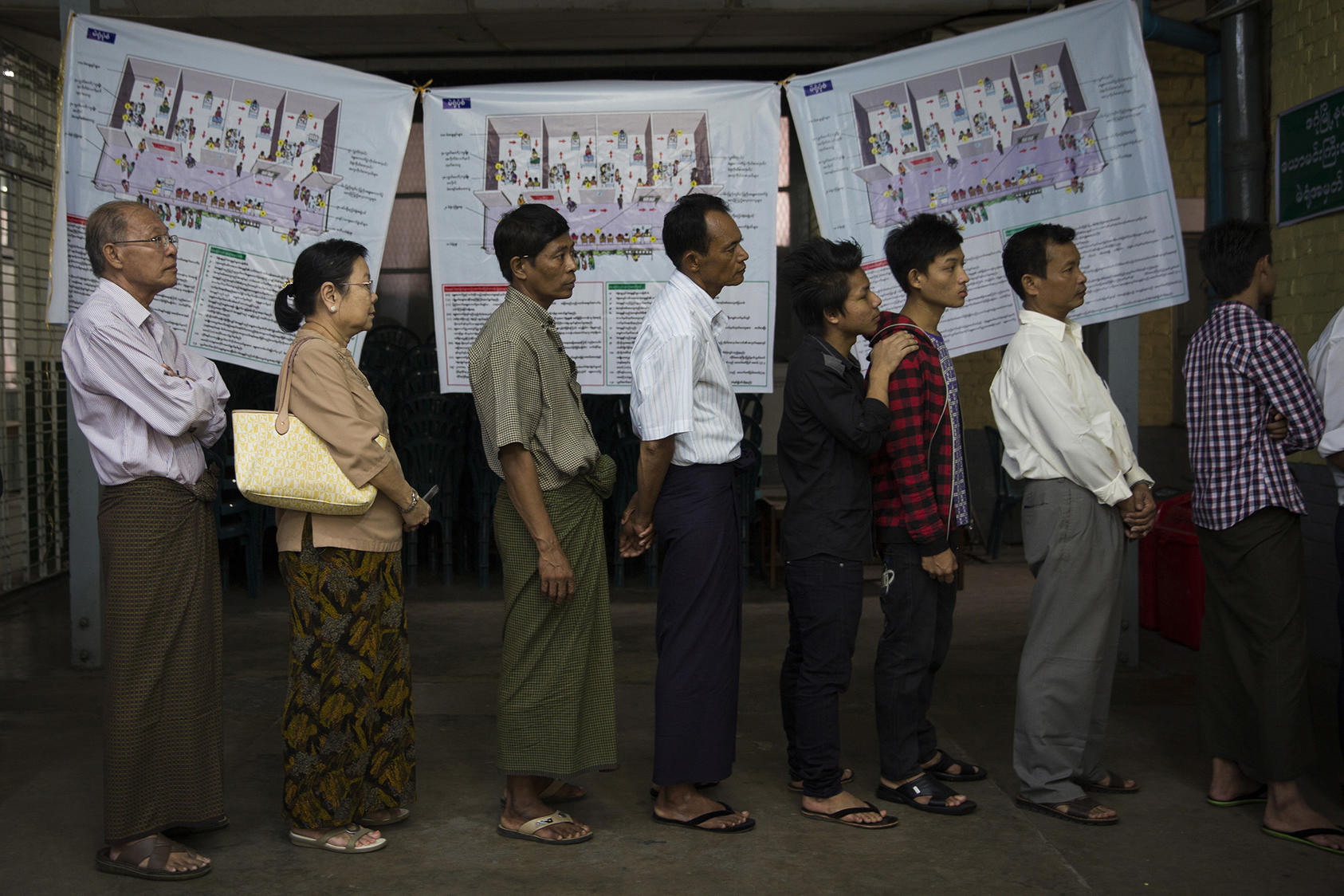Burma’s Big Test: Preventing Election Violence in 2020
For prevention measures to be effective, they need to start now.
The people of Burma will head to the polls in late 2020 to elect more than 1,100 representatives to national, state, and regional legislative bodies. During a recent field assessment, the U.S. Institute of Peace confirmed that the risk of election-related violence is surprisingly low considering the ongoing conflicts and multitude of grievances. However, hate speech, disinformation, and intense competition between parties could create violent incidents, particularly during the campaign period. Early efforts to promote peaceful elections need to start now as the window for effective prevention will soon be closed.

The results of the 2015 vote introduced a wave of hope for Burma, with the peaceful election of a civilian-led government and the appointment of Nobel Peace laureate Aung San Suu Kyi, leader of the then-opposition National League for Democracy (NLD), as de facto head of government. In a country where the military maintains a very strong position, the loss of the military-backed Union Solidarity and Development Party resulted in surprisingly low levels of civil unrest or political violence.
The long-standing fight between the army and, at present, 21 major ethnic armed organizations (EAOs) disenfranchised an estimated 500,000 people in areas where security could not be guaranteed, but EAOs did not attack the election process. Some isolated incidents included the alleged kidnapping of a candidate in northern Shan and an attack on an NLD candidate in Yangon, but overall the elections proceeded in a tense yet calm environment.
Ahead of 2020, most observers expect EAOs to engage constructively in the election to ensure their representation in legislative bodies. However, the 2015 experience should not give the impression that there is no risk, as Burma remains rife with grievances and frustrations that could trigger election violence.
In a recent USIP report, Mary Callihan highlights the risks posed by divisive campaigning and the use of Facebook as a platform for hate and disinformation. During USIP’s assessment, Burmese authorities confirmed that there are increased risks posed by inter-party competition, fake news, and hate speech as primary threats to a peaceful electoral process. Ethnic political parties have been merging more than in 2015, aiming to seek stronger representation. Meanwhile, the popularity of the ruling NLD party seems to be waning.
Extremist nationalism has emerged as a critical feature of politics in Burma and raises the risk of hate crimes. Political parties, candidates, or extremist religious figures can mobilize mobs to intimidate vulnerable candidates, voters, or party supporters. The decision by Facebook to suspend accounts spewing hatred has pushed several hate-mongers underground. The Union Election Commission (UEC) confirmed its plans to “work with the Ministry of Information and telecom providers in stopping the challenge posed by hate speech.”
Timely Prevention
Electoral security management committees will be critical to coordinate security planning for each state and region. Represented on the committees are the Myanmar Police Force (MPF), the General Administration Department (GAD), the UEC, and other Burmese authorities that are primarily responsible for election security. USIP confirmed that the coordination meetings have not yet started, and that most authorities claim to operate in status quo mode. According to the MPF, “Working procedures will remain the same, despite the GAD’s move under civilian authority.”
Addressing the identified risks for election violence will require a timely and coordinated approach involving not only relevant authorities, but also political parties, media, and civil society organizations. The quality of the UEC’s interaction with the electorate and civil society, along with the transparency and perceived impartiality of its decision-making, will shape the commission’s ability to deal effectively with irregularities or delays that could occur.
International donors and civil society remain well-represented in Yangon to help ensure the integrity of the election and go beyond technical assistance, civic education, or election observation. A dedicated focus on the promotion of peaceful election—through training, capacity-building and efforts to counter hate speech and disinformation—will be critical. Local election observers will play a vital role in reviewing the quality of the electoral process and in mapping the scope of violence.
USIP’s assessment team concluded that the risk of widespread and large-scale election violence is low, but higher compared to previous elections. Isolated security incidents will most likely occur in the long pre-election phase.
So, the time is now to start the prevention of election violence.



